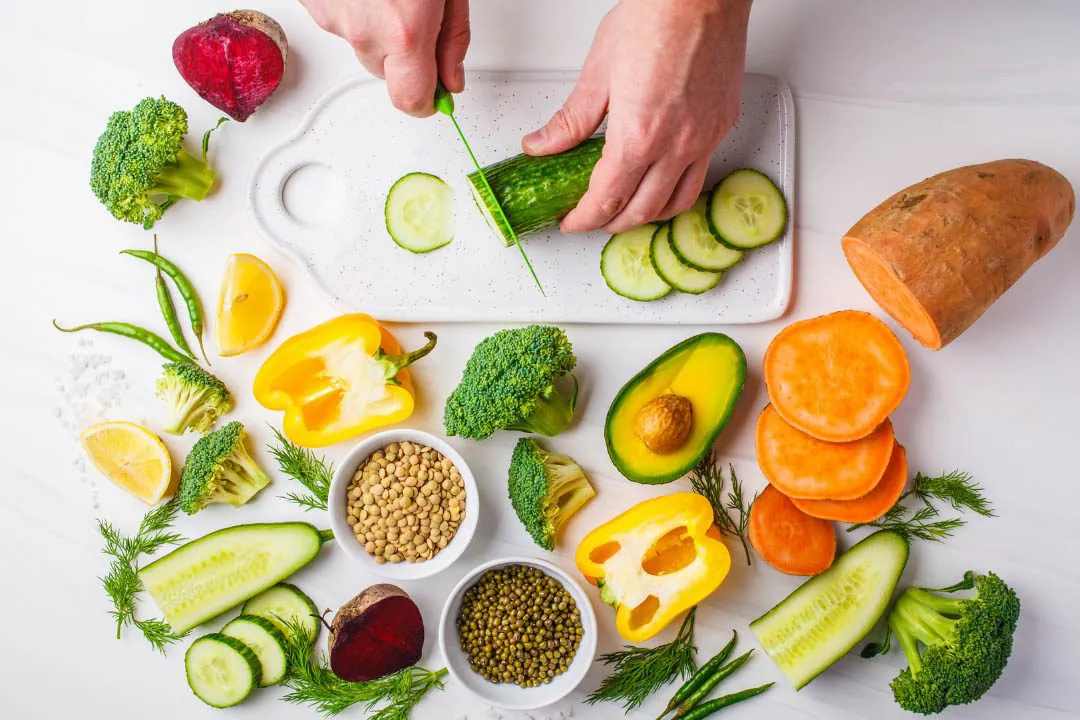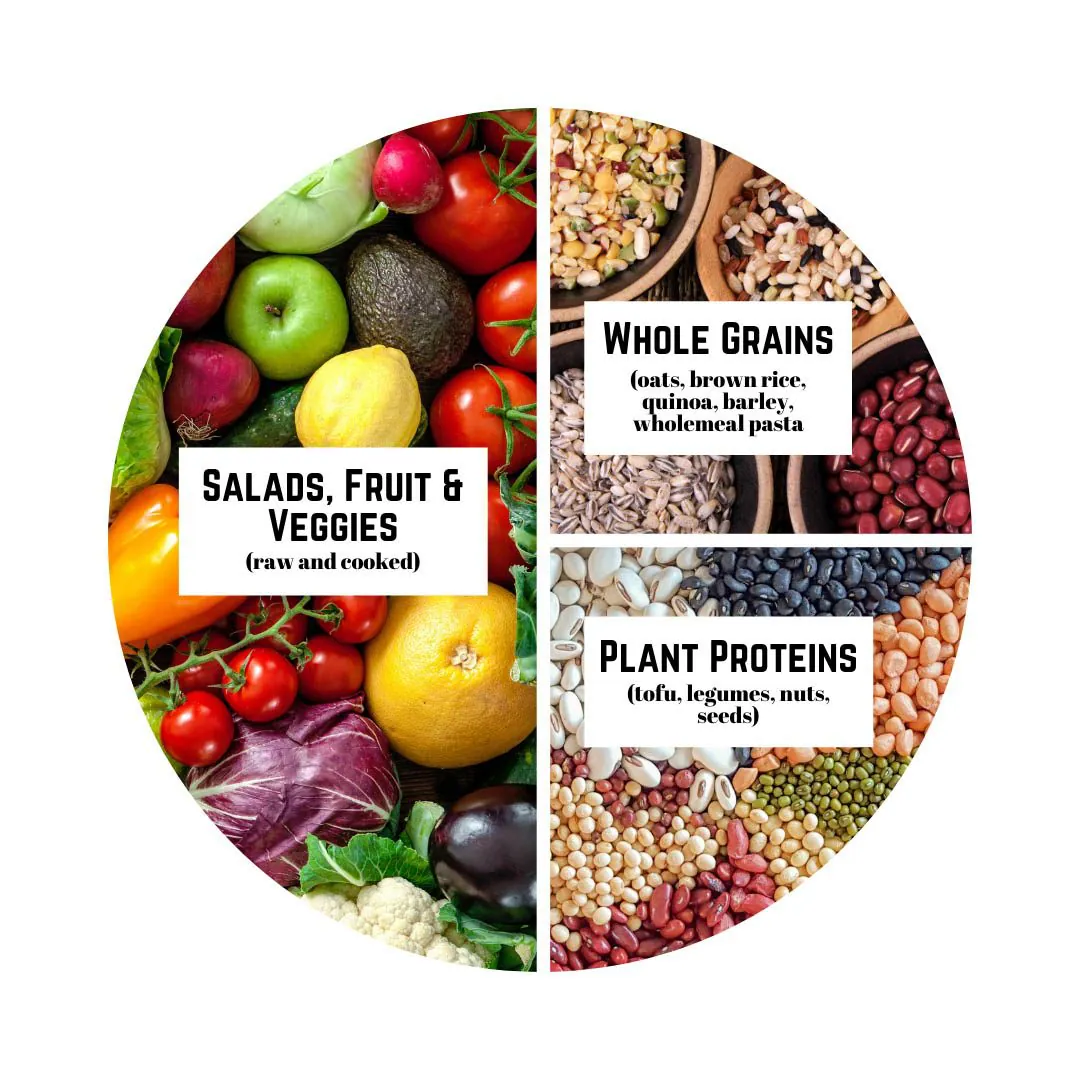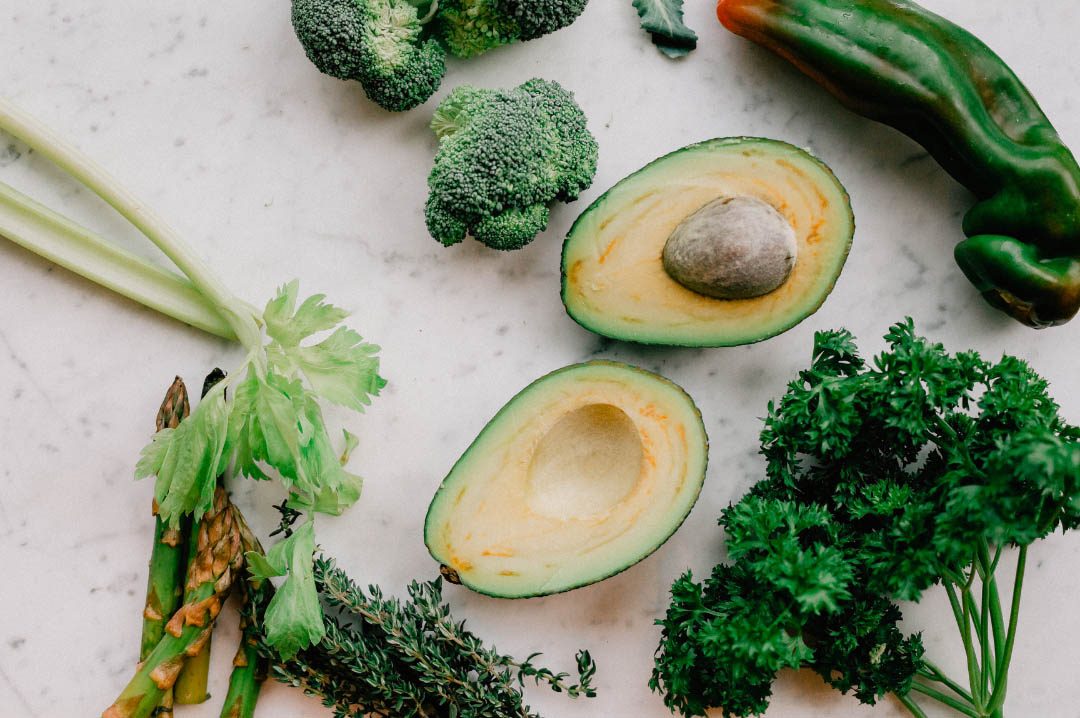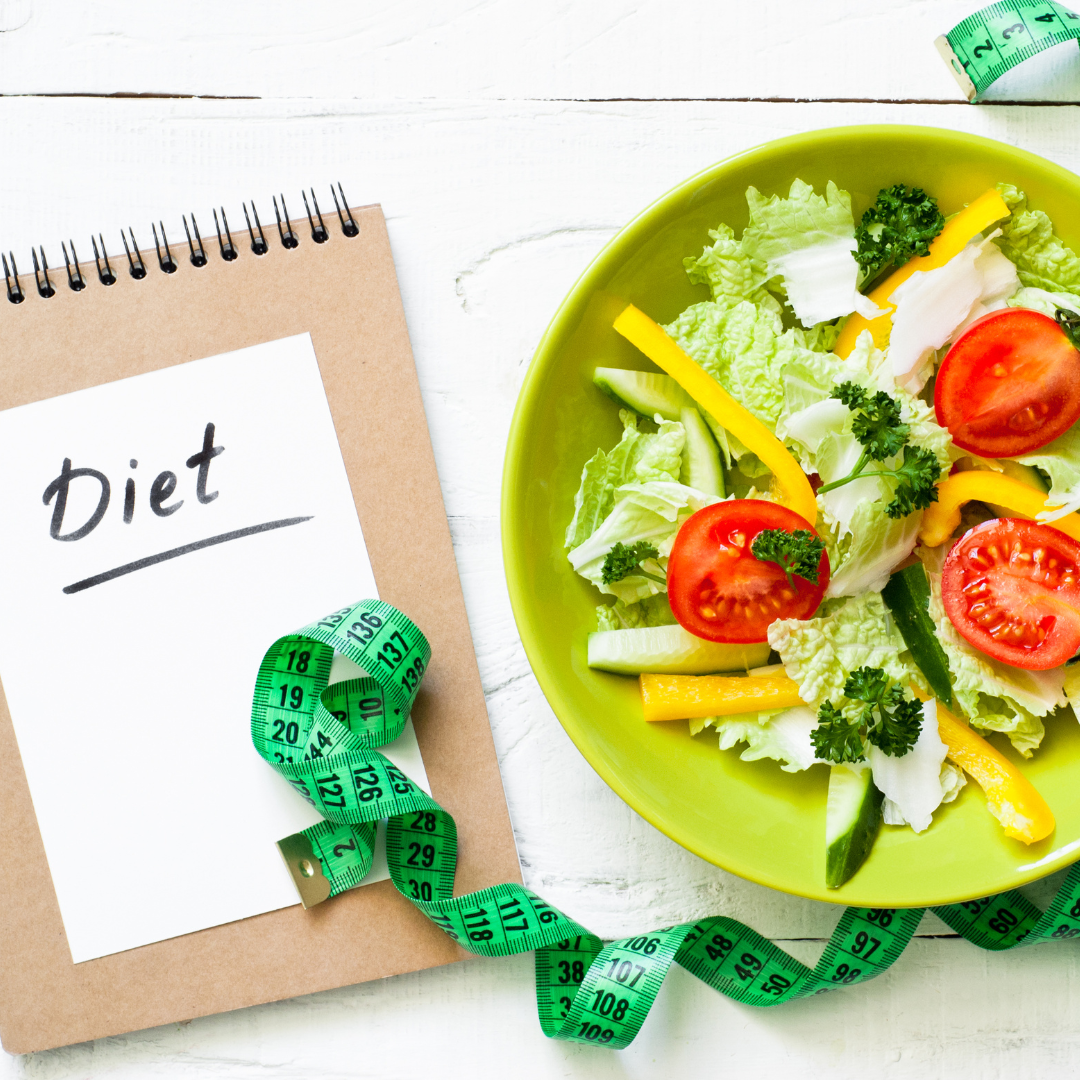Diet is one of the essential pillars of a balanced and thriving lifestyle! If you are thinking of switching to a plant-based diet, you’re in the right place! A whole-food, plant-based diet has all the benefits that make it an optimal diet. This diet is rich in micronutrients such as vitamins and minerals, antioxidants, healthy fats, plant-based protein, and unprocessed carbohydrates, making it appropriate at every stage of life. Research shows that whole-food plant-based diets and plant-forward diets may prevent diseases such as:
- Type 2 diabetes
- Cardiovascular diseases
- Hypertension
- Certain types of cancer, such as breast cancer, colorectal cancer, prostate cancer
- Alzheimer’s disease
- Obesity
While also improving many of the diverse aspects of health, including:
-
Digestion and microbiome diversity
-
Blood cholesterol
-
Insulin sensitivity
-
Fertility
-
Weight management
All these benefits, as well as many more, have made the various plant-predominant diets, including vegan, vegetarian and pescatarian, Mediterranean, and DASH diets, very popular worldwide.
But transitioning to a plant-based diet, especially when you’ve been eating the standard Western diet, can seem daunting. The truth is, with a little planning, moving to a whole foods plant-based or plant-forward eating style is not difficult at all. Of course, every person is different, and a diet that is 100% plant-based may not be feasible for all. Yet the more plant foods we include in our diet (legumes, vegetables, fruits, whole grains, nuts and seeds), the bigger the health rewards you will reap.
Start gradually with a plant-based diet
Transiting to a 100% vegan diet is likely too big a change from one day to the next. But, like every other important or big project, the best way to start is to break it down into smaller, more achievable goals. Here are some more ideas to help get you started- do them in any order, and as quickly or slowly as you tolerate:
- Start by eliminating two animal-based foods and replacing them with a healthier alternative; on your next pasta night, switch out your traditional dairy Alfredo sauce for a homemade cashew Alfredo! Instead of meat chili, switch to an entirely plant-based bean chili. Or, on your next taco night, swap the ground beef for some sautéed tempeh (marinated the same way you would marinate your meat).
- Increase consumption of whichever fruits and vegetables you love or already have at home. For example, you may add an extra serving of vegetables to your daily plate or fruit to your breakfast and smoothies.
- Try new fruits and vegetables that you don’t eat regularly, adding one or two a week.
- Try 1-2 new plant-based foods every week. Perhaps a new grain or legume you have never had before.
- Swap traditional processed meat-based foods such as pizza, pasta, hamburgers, nuggets, and sodas for plant-based alternatives. For example, instead of ordering a pizza, try making one at home with veggies, cashew sauce, or marinara and adding some vegan cheese. If you are big into these foods, try eliminating one day’s worth of these a week, replacing them with a plant-based and less processed alternative.
- Change your regular peanut butter to a natural option with no added sugars, where the only ingredient is the nut or seed.
- Instead of drinking soda, try drinking infused water (water with slices of natural cucumber, strawberries, or blueberries).
- Cook at home more often rather than go to restaurants, or start cooking a few meals a week if you never did before. Fast foods and restaurant foods are often full of salt, oils, and added sugars to enhance the flavors and preserve their shelf life, not to mention that they can be pricey. By cooking more at home, both your health and your wallet will thank you!
As you make these incremental changes, you will eventually find that you’ve given up many of your old eating habits and replaced them with new and healthier ones!

Stock up on healthy foods
Although people may think otherwise, eating plant-based is cheaper than an omnivorous diet. According to a study published in the Journal of Hunger & Environmental Nutrition, vegans save almost $750 a year4 (as long as you’re avoiding consuming many highly processed vegan substitutes). So stock up on a variety of vegetables and fruits, whole grains (like brown rice, buckwheat, amaranth, quinoa, whole wheat, sprouted and sourdough bread), and legumes (like chickpeas, lentils, black beans, and organic soybeans).
And as you stock up on the good stuff at home, finish off or donate the less healthy products. Not only will it prevent you from consuming them often, but it’ll also make sure your pantry isn’t overflowing!
Plan your daily meals in advance (prep twice per week)
Planning your meals and precooking what you can in advance make your days easier! Instead of cooking after a long day, you’ll only need to assemble your plant-based plate. It’s best to do meal prep during the days that you are less busy. Cook whatever will keep best in advance, including legumes, vegetables, and whole grains. If you’re inclined, you can also whip up some vegan sauces for pasta a day or two early and freeze them! Try cashew alfredo or tasty vegan Caesar dressings.
And don’t sweat making gourmet meals! A bowl filled with a mix of veggies, legumes, grains, and a delicious plant-based sauce can be ever so tasty!
Replace animal ingredients with healthy plant-based foods
There are tons of healthy and unprocessed replacements for animal products! For example:
- Cow’s milk → Plant milk such as Oat, Almond, or Soy milk (I don’t recommend coconut milk for drinking as it is higher in saturated fat and instead suggest using smaller amounts for cooking only)
- Eggs for baking → flax seed egg (mixing flax seeds with a bit of water)
- Scrambled Eggs → Tofu scramble
- Processed salad dressings → Dressing with natural ingredients such as seeds and nut butter (tahini, cashews, etc.)
- Poultry → Legumes, soy products such as organic tofu or tempeh
- Dairy Yogurt → Yogurt made with organic soy or coconut.
- Cheese → Nutritional yeast and cashews to make cream sauces for pasta, ricotta, sour cream, etc. Use store-bought vegan cheese alternatives sparingly.
To get Dr. Mendez’s complete guide to
optimizing your gut health click here!
Don’t be afraid of volume when eating plant-based!
Plant-based foods are lower in calories and rich in nutrients. For this reason, you’ll need larger volumes of food to sustain your energy throughout the day. You should feel free and relaxed to eat until you’re satisfied. This diagram will show you an easy way to set up your plate.

Include foods that are rich in essential nutrients
- Iron: Lentils, quinoa, spinach, beans, tofu, cashews, swiss chard.
- Protein: all plants have protein, but in different amounts. Higher protein plant foods include legumes, chickpeas, lentils, black beans, organic soy, tofu, tempeh, seeds, broccoli, quinoa, and red beans.
- Calcium: Red beans, broccoli, kale, orange, figs, bok choy.
- Zinc: Almonds, beans, chickpeas, brazil nuts, sunflower seeds.
- Omega 3s: Chia, hemp, and flax seeds, Brazil nuts, walnuts, sunflower seeds, and pecans.
- Iodine: Seaweed, navy beans, iodized salt. 1
Are supplements necessary?
When a nutrient need is not met, you may need a supplement. In a plant-based diet, almost all nutrient demands may be fulfilled, except in specific disorders or life stages (anemia, pregnancy, lactation, etc.).
But, supplementation of vitamin B12 is essential while eating a vegan diet. This means excluding all animal products from the diet). Vitamin B12 requirements vary depending on your age and gender. Always consult with your physician before starting any supplementation regimen. 2
When transiting into a plant-based diet, prioritize food diversity and meal planning and avoid processed foods. This will help you achieve the best outcomes. Eating ample amounts of fruit, vegetables, whole grains, and legumes is ideal.
Written in conjunction with Natalia Diaz Villarreal.
References:
- Linus Pauling Institute (2020) Micronutrient Information Center. Searched August 17th, 2020. Site: https://lpi.oregonstate.edu/mic
- Linus Pauling Institute (2020) Vitamin B12. Searched August 17th, 2020. Site: https://lpi.oregonstate.edu/mic/vitamins/vitamin-B12
- Physicians Committee for Responsible Medicine (2020) Plant-based diets. Searched August 17th, 2020. Site: https://www.pcrm.org/good-nutrition/plant-based-diets
- Flynn, M. M., & Schiff, A. R. (2015). Economical Healthy Diets (2012): Including Lean Animal Protein Costs More Than Using Extra Virgin Olive Oil. Journal of Hunger & Environmental Nutrition,
- Barnard ND, Cohen J, Jenkins DJ, et al. A low-fat vegan diet and a conventional diabetes diet in the treatment of type 2 diabetes: a randomized, controlled, 74-wk clinical trial. Am J Clin Nutr.
- Noto H, Goto A, Tsujimoto T, Noda M. Low-carbohydrate diets and all-cause mortality: a systematic review and meta-analysis of observational studies [published correction appears in PLoS One. 2019 Feb 7;14(2):e0212203]. PLoS One. 2013;8(1):e55030. doi:10.1371/journal.pone.0055030
- Jenkins DJ, Wong JM, Kendall CW, et al. The effect of a plant-based low-carbohydrate (“Eco-Atkins”) diet on body weight and blood lipid concentrations in hyperlipidemic subjects [published correction appears in Arch Intern Med. 2009 Sep 14;169(16):1490]. Arch Intern Med. 2009;169(11):1046-1054. doi:10.1001/archinternmed.2009.115
- Ornish D, Scherwitz LW, Billings JH, et al. Intensive lifestyle changes for reversal of coronary heart disease [published correction appears in JAMA 1999 Apr 21;281(15):1380]. JAMA. 1998;280(23):2001-2007. doi:10.1001/jama.280.23.2001
- Esselstyn CB Jr, Gendy G, Doyle J, Golubic M, Roizen MF. A way to reverse CAD?. J Fam Pract. 2014;63(7):356-364b.
- Song M, Fung TT, Hu FB, et al. Association of Animal and Plant Protein Intake With All-Cause and Cause-Specific Mortality [published correction appears in JAMA Intern Med. 2016 Nov 1;176(11):1728]. JAMA Intern Med. 2016;176(10):1453-1463. doi:10.1001/jamainternmed.2016.4182
- Pettersen BJ, Anousheh R, Fan J, Jaceldo-Siegl K, Fraser GE. Vegetarian diets and blood pressure among white subjects: results from the Adventist Health Study-2 (AHS-2). Public Health Nutr. 2012
- Ornish D, Weidner G, Fair WR, et al. Intensive lifestyle changes may affect the progression of prostate cancer. J Urol. 2005;174(3):1065-1070. doi:10.1097/01.ju.0000169487.49018.73
- Campbell TC, Parpia B, Chen J. Diet, lifestyle, and the etiology of coronary artery disease: the Cornell China study. Am J Cardiol.
DISCLAIMER: THIS WEBSITE DOES NOT PROVIDE MEDICAL ADVICE
All the information on this website, including, but not limited to, text, graphics, images, and other material are for informational purposes only. No material on this site is intended to be a substitute for professional medical advice, diagnosis, or treatment. Always seek the advice of your physician or other qualified health care professional with any questions you may have regarding a medical condition or treatment before undertaking a new health care regimen, and never disregard professional medical advice or delay in seeking it because of something you have read on this website.









